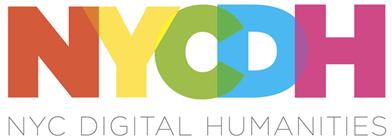Greetings, I’m a professor of law at New York Law School (in Tribeca). I recently posted my new working, paper, Software is Scholarship, on SRRN: https://ssrn.com/abstract=3632464 I thought I would share it here in case of interest. Any feedback would be appreciated. Thank you!
Software is Scholarship
Abstract
This Article provides the first systematic account of software applications as works of scholarship. Software is scholarship to the extent that software functionality is derived from scholarly research, is used as a means to develop written scholarship, or is used to communicate scholarly ideas. Software applications are superior to articles and books for communicating scholarly ideas because software applications can communicate using a wide variety of textual components, graphical elements, and programmable interactivity.
This Article identifies four categories of methods that can be used by scholarly software applications to communicate scholarship: appified argumentation that provides theoretical clarity, interactive toolkits that create rich qualitative studies, data visualizations that persuade using data, and policy tech that enhances the ability to enact social change. Software applications can enhance research agendas in the humanities and social sciences by making traditional, prose scholarship more thorough, persuasive, and analytically precise. Software applications should accordingly be widely used by scholars as a medium to communicate their ideas instead of traditional books and articles.
To better understand this Article’s concept of scholarly software, I apply my framework for scholarly software to legal scholarship and legal technology and discuss three case studies: legaltech toolkits, voice recognition for automated contract drafting, and court data visualizations. Law is a fertile ground for the development of scholarly software. The core of law, like software, consists of a computational structure whereby formalistic reasoning upon inputs (facts) evaluates to an output (a legal conclusion).
Due to recent innovations, developing software for scholarly purposes is accessible to those that work in the humanities. Platforms for developing software have grown so sophisticated that they no longer require scholars to write code to develop powerful, data rich, and well-designed interactive applications.
This Article is organized as follows: Section I introduces and contextualizes the concept of scholarly software. Section II identifies the relevant aspects of computer science, software engineering, database technology, and web applications that are a basis for understanding and developing software applications that promote scholarship. Section III develops a theory of software applications as scholarship and analyzes recent technology enablers. Section IV explores how to use visual development to create scholarship based upon the core components of user interface, programmable workflow logic, and database systems. Section IV also articulates four methodological categories of scholarly scholarship. Section V applies this Article’s arguments to legal scholarship and legal technology. Section VI concludes.
Best,
Houman Shadab
houman.shadab@nyls.edu
